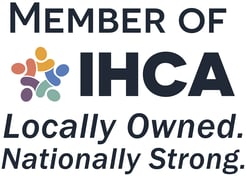What Senior Women Need To Know About Breast Cancer
Did you know that breast cancer is among the most common cancers women can face? In fact, the two biggest risk factors for contracting breast cancer are being a woman and getting older. For this reason, it is crucial that senior women become more aware of this disease and its risk factors, warning signs, and symptoms. Since October is Breast Cancer Awareness Month, we encourage you to start the conversation now!
The Basics of Breast Cancer in Seniors
What is Breast Cancer?
Cancer is a general term for diseases in which abnormal cells form and negatively impact the functions of normal, healthy cells. Groups of these abnormal cells are called tumors and they come in several different forms. Tumors in breast tissue can be metastatic, inflammatory, or ductal carcinoma.
Breast Cancer Risk Factors
In addition to being a woman and being a senior, there are several other risk factors that increase the chances of contracting breast cancer.
- You are more likely to get breast cancer if you have no children or if you had your first child after the age of 35.
- You are more likely to get breast cancer if you have dense breast tissue.
- You are more likely to get breast cancer if you have a family history of breast or ovarian cancer.
- You are more likely to get breast cancer is you have previously had cancer in one breast, or have experienced breast tissue abnormalities such as hyperplasia.
Diagnosing Breast Cancer
If a senior experiences breast cancer symptoms, diagnosis will occur through one or more of the following:
- A mammogram
- An MRI
- An ultrasound
- A biopsy
- Lab tests
However, 40% of all breast cancer cases are first self-detected at home. Make sure you and your loved ones regularly check for lumps and abnormalities by inspecting your breast and armpit areas.
Treating Breast Cancer in Seniors
40% of patients newly diagnosed with breast cancer are over the age of 65. Senior patients are often treated much differently than those diagnosed at a younger age. Common cancer treatments can include:
- Surgery
- Radiation
- Chemotherapy
- Hormone therapy
- Targeted medicinal therapy
Although treatment strategies depend on the type of cancer, the goal in treating all forms of cancer is to destroy any and all unhealthy cells. However, this intense form of treatment always comes with risk. For seniors, the risks can be so significant that treatment cannot be administered as forcefully, especially in those seniors who already have other medical conditions or physical vulnerabilities.
Seniors with breast cancer should ask their doctors questions about their treatment regimen so that they fully understand the course of treatment prescribed and the associated risks.
Prevention and Detection Tips
For all those who are 55 and older, use these prevention and detection tips to reduce the risk of breast cancer and increase the chances of detecting breast cancer early:
- Have a mammogram every other year
- Pay attention to any changes in your breasts and report them to your doctor immediately
- Talk to a doctor if you have a higher risk of breast cancer
- Ask your doctor about tamoxifen and raloxifene if you are at a high risk
- Maintain a healthy weight and nutritious diet
- Stay physically active
- Avoid post-menopausal hormones
- Do not smoke
Breast Cancer By The Numbers
- More than half of all women with breast cancer are over 60
- One fifth of women with breast cancer are over 70
- There are more than 30 million women who have or have had breast cancer in the United States alone.
Home Care Tip
The National Breast Cancer Foundation offers a free guide to symptoms that senior women may find helpful. Help a senior download this guide at nationalbreastcancer.org
- Public Health in the Age of COVID - September 15, 2021
- World Elder Abuse Day June 15, 2021 - June 28, 2021
- World Elder Abuse Day - June 15, 2021


